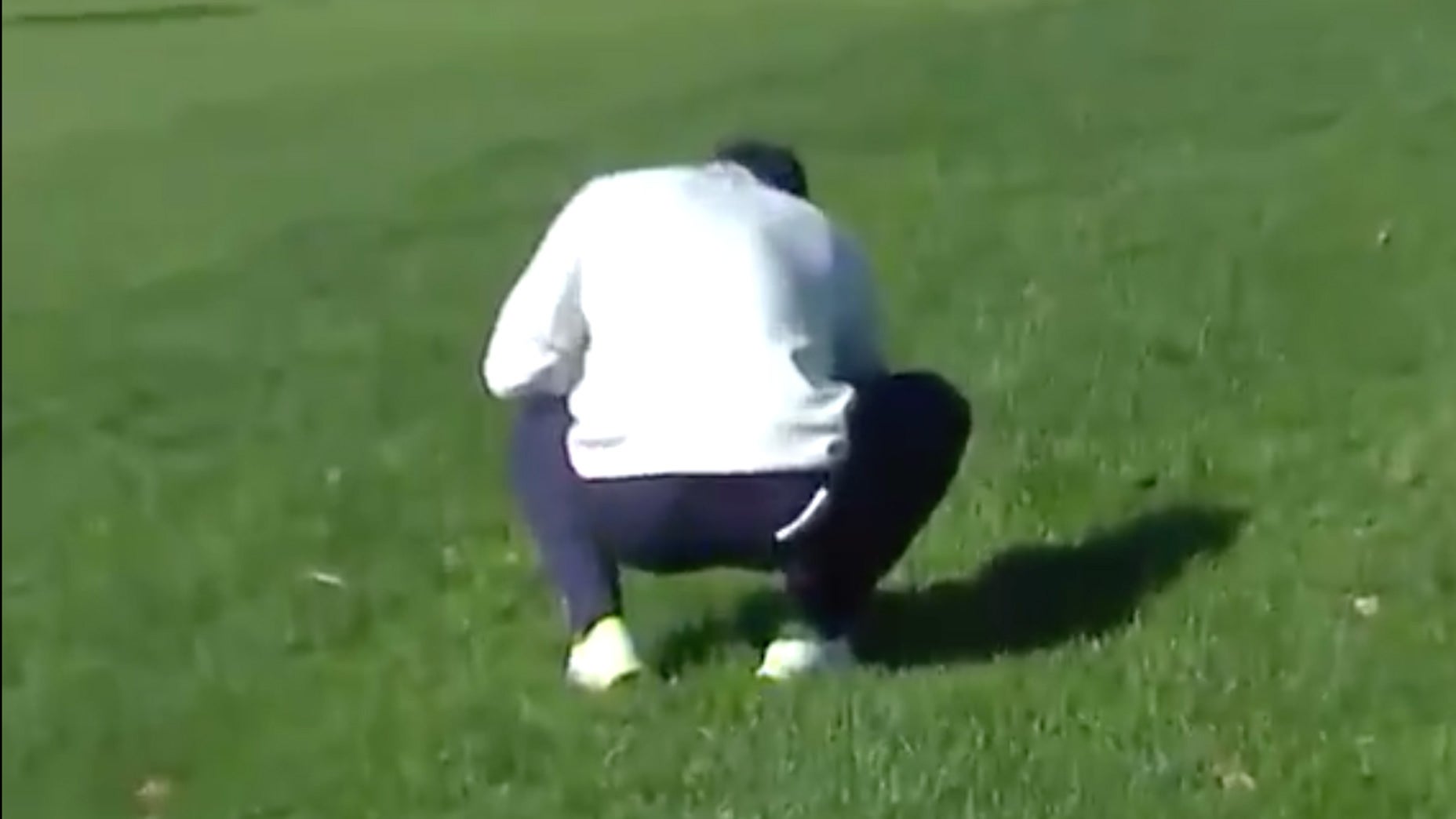Patrick Reed, during Saturday’s third round of the Farmers Insurance Open, hit a second shot on the 10th hole at Torrey Pines that took a bounce in the rough, and Reed was able to take embedded ball relief.
Rory McIlroy also hit a second shot on the 18th on Saturday that took a bounce in the rough. McIlroy was able to take embedded ball relief, too.
In a video released by Golf Channel and the PGA Tour on Sunday, McIlroy was shown hitting his second shot on the par-5 closing hole, and his ball bounced once before nestling into the rough right of the fairway. According to Golf Channel reporter Todd Lewis, a marshal pointed out where the ball landed, McIlroy examined the ball to determine whether it was embedded, as allowed under Rule 16.4, and told playing partner Rory Sabbatini that he thought it was. Without calling over a Rules official, McIlroy took a drop and hit his third shot.
The sequence, according to both McIlroy and Patrick Reed’s verified Twitter account, was similar to what happened to Reed on the par-4 10th.
“Yeah, that same thing that happened to Patrick Reed happened to me on 18,” Lewis said McIlroy told him. “He was very open and honest about it.”
On the 10th, about an hour or so before McIlroy’s shot, Reed hit his second, from the sand, and his ball bounced once before settling into the rough. In his post-round interviews, Reed said he did not see the ball bounce, and he also asked the hole volunteer, his two playing partners, Will Gordon and Robby Shelton, and the grouping’s three caddies if they had seen the ball bounce, and Reed said they all said no. At that point, he lifted the ball to check whether it was embedded, he determined it was, and he called for a Rules official to make sure.
Reed would then twice tell Brad Fabel, a PGA Tour senior tournament official, that the ball did not bounce. Fabel checked an indentation, also determined the ball had embedded and allowed Reed to take relief. He would go on to par the hole, and he was tied for the lead entering Sunday’s final round.
In three interviews after the round, Reed defended his moves, and Reed told CBS reporter Amanda Balionis that senior tournament director John Mutch told him that “what just transpired was textbook.” Then, at 8:09 p.m. ET, Reed’s verified Twitter account responded to a Balionis tweet with a video of Lewis explaining McIlroy’s situation and the following words:
“RORY MCILROY @McIlroyRory DID THE SAME THING TODAY ON HOLE 18! AND DIDN’T EVEN CALL A RULES OFFICIAL OVER TO DEEM THE BALL EMBEDDED. END OF STORY.”
Mutch said Sunday that “it was reasonable” for McIlroy and Reed to conclude that their golf balls embedded in their own pitch mark.
“As I mentioned yesterday, this is kind of a common occurrence in soft conditions on the PGA Tour,” Mutch said. “And the Rules are written so that everyone can play the game. If you and I were playing and the same thing happened, we would operate the same way. …
“We’re completely comfortable with both situations and what happened yesterday.”
On Golf Channel, former PGA Tour player and analyst Brandel Chamblee said the tweet from Reed’s account was “an appeal to authorities saying, ‘Look, if Rory did it, then I’m exonerated.’” Still, Chamblee said it was “hard to imagine” a ball bouncing, then re-embedding.
“I don’t have video, I certainly didn’t see Rory digging in that hole, but, nonetheless, it’s hard to watch that,” Chamblee said. “It really is. It’s hard to watch the player being able to pick the ball up so easily, move it around, take drops — it’s not a good look for the PGA Tour, not by any stretch of the imagination. I realize why they instituted ball in hand because of inclement weather, but how it extended to Saturday is a bit beyond me in this particular instance.
“And it doesn’t look good for the Tour, it doesn’t look good for Patrick Reed, in this particular instance, it doesn’t look good for Rory.”
